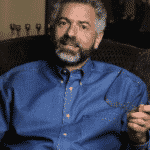Podcast Summary
Exploring Complexities of Biological Sex: Society is making progress towards accepting different gender expressions, but there's still much to learn about the science behind sex determination. IXL Learning offers resources to help kids understand complex topics like this.
Our understanding of biological sex is more complex than the traditional male or female, XX or XY categories. This was explored in a TED Radio Hour episode, featuring artist and activist Emily Quinn, who shared her experience of being diagnosed with Androgen Sensitivity Syndrome as a child and living with intersex traits. Society, including legal systems, are making strides towards accepting different gender expressions, but there is still much to learn about the science behind sex determination. IXL Learning, a supporter of NPR, offers advanced educational resources to help kids navigate complex topics like this, and they are offering an exclusive 20% discount for new members.
Recognizing the Complexity of Biological Sex: Intersex individuals, making up 2% of the population, challenge the male/female binary with their unique bodies and experiences, including variations in chromosomes, gonads, internal organs, and secondary sex characteristics. Society's rigid categorization can lead to misunderstandings, shame, and medical interventions without consent.
Biological sex is more complex than the traditional male or female binary. Intersex individuals, who make up around 2% of the population, challenge this binary through their unique bodies and experiences. These individuals may have variations in chromosomes, gonads, internal organs, external genitalia, hormone production, hormone response, and secondary sex characteristics. Society's tendency to put people into boxes based on their sex can lead to misunderstandings, shame, and even medical interventions without informed consent. It's essential to recognize and respect the diversity in human biology and challenge the stigma surrounding intersex individuals.
Intersex Individuals and Societal Norms: Intersex individuals face emotional and physical trauma due to societal norms and lack of acceptance, causing harm from intended surgeries. Empathy and understanding towards intersex individuals is crucial for their well-being.
The treatment of intersex individuals through surgeries, often intended to improve their lives, can cause more harm than good. Emily Quinn, an intersex person herself, shares her experience of feeling like an outsider due to societal norms and the lack of acceptance and understanding. She wishes for a more inclusive environment where intersex individuals can belong and feel validated. The impact of these experiences can lead to emotional and physical trauma, which can take years to address. Despite the challenges, Emily's journey towards acceptance and openness has been liberating, and her story serves as a reminder of the importance of empathy and understanding towards those who don't fit neatly into societal definitions of normal. The conversation also highlights the complexity of biological sex beyond the binary of male and female.
The complex history of X and Y chromosomes: The labels of 'sex chromosomes' oversimplify the many functions of X and Y chromosomes, and it's important to distinguish between biological sex and personal identification as gender.
Our understanding of biological sex, as determined by X and Y chromosomes, is more complex than we once thought. These chromosomes, discovered at the turn of the 20th century, have been named "sex chromosomes" due to their connection to male and female development. However, scientists have warned against this label due to the chromosomes' many functions and the potential cultural and social implications of attaching the term "sex" to something biological. The history of these chromosomes' discovery and our understanding of them is crucial to the field of genetics, but their identification with sex is not a simple matter. Instead, sex and gender, while related, are distinct concepts. Sex refers to biological and physiological characteristics, while gender is a personal identification. The complex history of X and Y chromosomes challenges us to reconsider our simplistic views of biological sex.
Beliefs about sex and gender can influence genetic interpretations: Beliefs about sex and gender can lead to oversimplified theories, such as 'supermales', ignoring the complexity of biology and essential role of X chromosome in all humans.
Our beliefs about sex and gender can influence how we interpret genetic findings, leading to oversimplified and potentially harmful theories. For instance, the theory of "supermales" that emerged in the late 20th century, which suggested that an extra Y chromosome could explain criminality in some men, was based on this kind of thinking. This theory, which gained widespread attention despite a lack of evidence, shows how deeply ingrained assumptions about sex and gender can be, and how easily they can lead us astray. It's important to remember that biology is complex, and that our bodies have many different components that contribute to our behaviors and traits. One thing that is often overlooked is the fact that every human being has an X chromosome, which is not just associated with female-ness but is essential for survival. Only a small percentage of the genes on the X chromosome have to do with sex and reproduction, and the rest play a role in other functions. By recognizing the complexity of biology and challenging our assumptions about sex and gender, we can avoid falling into oversimplified and potentially harmful theories.
Understanding the complex interplay between genetics and hormones in sex and gender: New discoveries challenge the notion of the brain as an isolated entity, emphasizing the importance of considering hormonal influences on brain development from the start of life
Our understanding of sex and gender is evolving, and so too should our language and concepts in biology. While sex chromosomes, specifically X and Y, have been traditionally referred to as such, it's important to remember that this terminology is a form of shorthand and not a definitive description. The discovery of the role of hormones in brain development and their interaction with sex chromosomes during prenatal phases highlights the complex interplay between our genetic makeup and physiology. From a biological perspective, our DNA dictates the production of specific hormones, which in turn influence brain development and optimization for certain receptors. These differences start from the very beginning of life, shaping the structure and function of male and female brains. This newfound knowledge challenges the notion of the brain as an isolated entity and emphasizes the importance of considering the body's hormonal influences on brain development. As we continue to explore the complexities of sex and gender, it's crucial to remain open to new discoveries and to recognize the historical context of our scientific terminology.
The brain and reproductive systems are connected through the neuroendocrine system: The neuroendocrine system influences brain function and reproduction, with hormones like estrogen playing key roles. Brain health and reproductive health are interconnected, and specific brain areas have high hormone receptor concentrations, affecting responses like energy, immunity, resilience, and growth.
The brain and reproductive systems are intricately connected through the neuroendocrine system. Hormones like estrogen play crucial roles in both brain function and reproduction. The health of the brain and ovaries influence each other, and specific parts of the female brain have high concentrations of hormone receptors, which activate various responses, including increased energy, immunity, resilience, and growth. The neuroendocrine system is not just responsible for reproduction but also facilitates numerous essential functions within the brain. The existence of intersex individuals, such as Lisa Mosconi's interviewee Emily Quinn, highlights the complexity and overlap between male and female brains, as hormonal responses can vary greatly from person to person. Ultimately, the differences between male and female brains are not strictly defined by chromosomes or anatomy, but by the unique functional changes that occur over time.
Hormonal fluctuations impact brain structure and function throughout female life: Female brains undergo hormonal changes during puberty, pregnancy, and menopause, leading to alterations in brain structure and function. Genetics, experiences, and lifestyle factors influence these changes.
The female brain undergoes significant changes throughout different stages of life due to hormonal fluctuations, leading to alterations in brain structure and function. These changes are not just limited to menopause but also occur during puberty and pregnancy. While some of these differences are influenced by genetics, experiences and lifestyle factors also play a crucial role in shaping the health of our hormones and brains. The interplay between these two systems is complex and not yet fully understood. It's important to remember that these differences are not about being better or worse, but simply about the unique ways male and female brains function. Continued research in this area will help us better understand the intricacies of biological sex and its impact on our overall health.
From Astrophysics to Epigenetics: A Scientist's Journey into Understanding Gender: Astrophysicist Dr. Carissa Shomaker transitioned to studying epigenetics to explore how the environment influences gender development, potentially explaining transgender identities.
Dr. Carissa Shomaker, a scientist with a background in astrophysics, was inspired by her personal experience as a transgender woman to explore the biological basis of gender. She transitioned from studying the stars to studying epigenetics, a field that explores how the environment can change gene expression and sits between nature and nurture. Dr. Shomaker's research focuses on understanding how epigenetics might influence the development of male and female bodies in the womb, and how it might contribute to transgender identities. Waddington's Landscape, an analogy about epigenetics, imagines cells as marbles rolling down a hill, making decisions as they develop. Scientists are investigating how epigenetics might alter the path our cells take during development, potentially explaining how some individuals develop as one gender but identify as another. This research could shed light on the complex interplay between genetics and environment in shaping gender identity.
Exploring the complex relationship between biology and gender identity: While research on DNA folding and epigenetics sheds light on potential connections, the journey from DNA to gender is long and complex, emphasizing acceptance and acknowledgement of individual identity.
The relationship between biology and gender identity is complex and not yet fully understood. While scientists are exploring the role of epigenetics in fetal development and the potential connection to gender dysphoria, there is still much research to be done. At the atomic level, scientists are simulating how DNA folds and forms knots, which may influence gene expression and potentially epigenetic changes. However, the journey from DNA to brain structure and behavior, and ultimately to the concept of gender, is a long and complex one. As Parisa San Bonnatsu, a structural biologist at Los Alamos National Laboratory, emphasizes, it's important to remember that definitions of sex and gender are evolving, and what it means to be a woman or a man may not be as straightforward as we once thought. Acceptance and acknowledgement of individual identity may be the most essential aspect of understanding gender.
Flexibility and self-paced learning in education and acknowledging diverse experiences and truths: Capella University offers flexible self-paced learning for personal growth and education, while NPR's Black Stories Black Truths podcast emphasizes the importance of recognizing and valuing diverse experiences within the Black community.
Education and personal growth can be achieved at your own pace and on your terms with Capella University's FlexPath learning format. Meanwhile, NPR's Black Stories Black Truths podcast highlights the importance of celebrating and acknowledging the diverse experiences and truths within the Black community. These two messages remind us of the value of flexibility, self-paced learning, and the importance of acknowledging and valuing different perspectives and experiences. Whether you're pursuing higher education or seeking to expand your understanding of the world, these messages encourage us to imagine our futures differently and to embrace the richness and complexity of our own journeys.








